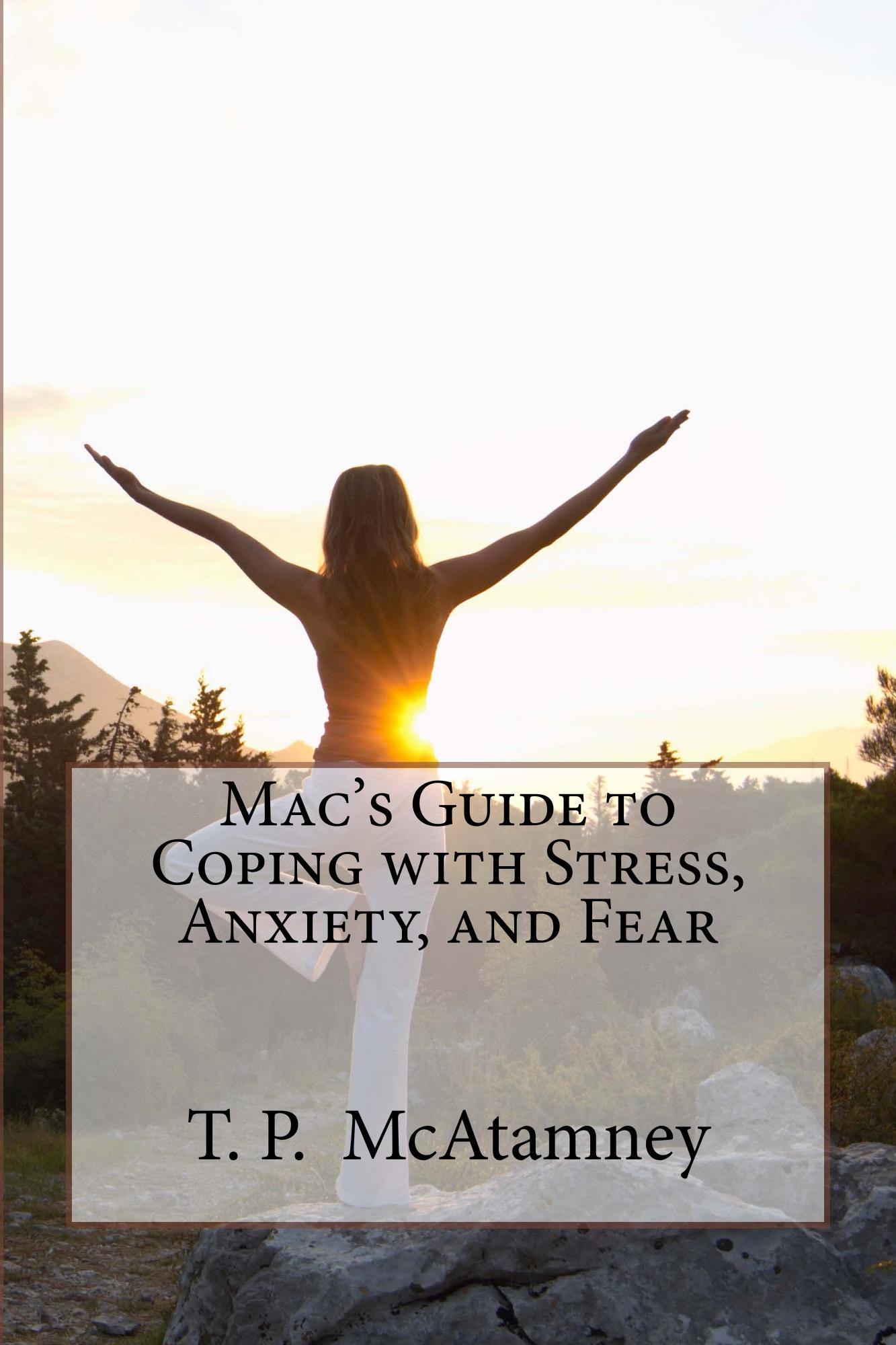STOP DRIVING YOURSELF CRAZY!

"You are driving me crazy!"
How many times have you said that to someone? We all have. It's a term much like the many we use on a daily basis, but is it true? Can people drive us crazy?
Well of course not, because that the exclusive right of ourselves. We are usually our own worst enemy and when you analyize it, you'll find I'm right.
Remember the last time you did something, like locking your keys in your car. Think back now, what did you call yourself? Maybe "idiot!" or "I'm so stupid". Maybe you even hit yourself in the head because you were so mad?
We human beings are unique because we possess an behavioral mechanism that isn't present in other organisms. All other animals, mammals, fish, etc, operate on "instinct", or if you will a computerized program of behavior. That's why just about every dog or cat you see acts in a certain way. It's why the geese fly south for the winter, it's why the lion attacks the zebra.
In humans we have another, more sophisticated way of behavior and
it's called "reason". This is different than what other creatures
possess. Which is why while we eat like the animals, you've never
seen a dog push away a bowl of food and stare into space and say, "I
wonder if there is more to life than this?"
It's in this ability
to analyzize our environment and reason on how to deal with it, and
it's precisely here that the problems occur. They occur because we
over-analize our environment, the things that happen to us.
To illustrate, I use something called The Behavioral Reaction Matrix (BRM), to show how we humans actually "tick".
The Behavioral Reaction Matrix is simply the process that outlines the way we react to life and it's stresses and the way we react to cope with and adjust to them. Every occurrence of stress we experience at work and in life invokes a response of some type on our part. Unlike other animals this isn't predictive, and the responses can be different for everyone.
WHAT HAPPENS
As we see the situation
occurring to us, our mind processes the event just as a computer
would. The first thing we do is to attempt to "identity" the problem
and it's relation to our well-being or our safety. In other words,
we attempt to adapt, cope and adjust to the situation
The
stressor can be anything at all. It could be an emergency, or
something as simple as misplacing your glasses. Again, whatever the
stress or happening we are going to in someway react to it.
It
may be different for each of us.
The level of response each
person exhibits will depend primarily on two things unique to that
individual, based on two things.
EXPERIENCE AND MEMORY
Experience is the sum
of all the previous "like" occurrences that have experienced over
the years. Of course how good the memory of that previous occurrence
will decide how much of it will play a role in the current
situation. For instance, you could be with a friend shopping in a
store when you hear a fire alarm. For you this is the first time,
yet for your friend this could be the third time they've experienced
it. Who is going to be calmer and more able to think clearly?
When something happens to us our minds immediately look for a "frame of reference". That is some kind of familiarity with the situation. Like in the example if we're experienced it once before, or even something similiar, then our minds can form a plan of resolution. However, it it's the first time it's ever happened, or anything like it, then our minds will race to (compute) calculations to find a solution to the problem. The more we are at a loss, the more stressful become.
This is important because in themselves, people, places and things, are not the sources of our stress. They in themselves do not cause us stress. People don't really make us angry. We get angry at something they do. It's not to say that what they did is not wrong, but whether or not we react angrily is dependent on us, not on them. The "power" to upset isn't in the event, it's in US, we own our responses.
CONDITIONED RESPONSE
Our reaction to an
occurrence is also dependent on our conditioned reaction to it, or
how over time and repetition where we reacted to a situation in a
way before, and subsequently the same way when either the same or
similar incidents took place. Most of the time we react to these
"same" or "like" incidents in very much the same way each time.
For instance look at the following list of events, ask
yourself what is YOUR usual reaction to them:
1. You lose your car keys (usually just as you are leaving
for work)
2. Your kid gets lost in the Store
3. You get cut
off in traffic
4. The upstairs toilet overflows
5. Your car
breaks down
6. Any kind of bad news (variety of sources)
7. A
change of plans, OR just change in itself.
8. You are caught in a
long line in the supermarket, or behind the person with 11 items in
the 10 items or less line and they're paying with a check.
9.
You're caught in a traffic jam.
10. The electricity goes out in a
storm.
How we react to any of these given situations is largely
dependent on how we have reacted to the same or a similar occurrence
in the past.
For instance in the case of lost car keys (my favorite), the way we react to losing our keys is pretty much the same reaction every time. So we blew our stack the first time we ever did it then we will have the tendency to do again. This is the same thing for the other events. Once we have formed a "habit of reaction" to an event it becomes assigned to that or similar events. Just like a computer, we will follow the program every time it runs.
Within the Reaction Matrix is a two-fold process that occurs. Let's take the example of lost keys to see what takes us from just a query, "Where's my keys? To "WHERE IN THE HELL ARE MY KEYS!"
FIRST REALITY: In the reality of the situation
we are simply unable to find the car keys. That's it! There is NO
other reality happening at this moment!
FIRST FANTASY:
Here comes the trouble. It is the secondary thinking that comes on
the heals of the first reality.
So we lose our keys, but now our
mind begins to think, "Since I can't find my keys, I'm going to be
late for work, then I am going to get fired." Then "I'm going to be
evicted from my home." Then "I'll be out on the street!"
Now we
are essentially ADDING to the reality of the
situation, things that haven't happened yet and probably won't. Is
it true that you will be late? Fired? Broke and on the street?
Is
that happening NOW?
Nope, none of it is
happening, except in your head!
This is also called "catastrophic
thinking". It's where you take the situation far beyond it's present
reality and allow it to grow into something bigger than it is!
But the truth is: The fact that you cannot at this
moment find your car keys is the only reality at this moment! This
is the kind of thinking that will simply drive you crazy. The mind
and emotions are linked in such a way that whatever you think about,
you are going to feel. It is one thing to think a thought based on
facts and then have an appropriate emotion in response. It is quite
another to have thoughts based on subjectivity and fantasy and then
have emotions respond to something that isn't there.
Such as in the "keys" example above, imagining all the "scary scenarios" you run around the house, kick the dog (or cat), yell at your spouse, scream at yourself, etc. All this for things that haven't, and most likely won't happen.
The fact of the matter is that your MIND controls your emotions and even when the situation you are imagining isn't real, your BODY is going to react as if it were real!
Keeping your mind on the facts of what is going on NOW and not what COULD happen can make all the difference in the world.
Read more in my new book, Mac's Gude to Coping with Stress, Anxiety and Fear! Available on Amazon, Amazon Kindle and other retailers!

EAT THE HAY, SPIT OUT THE STICKS! How to speak and LISTEN to anyone to get the most valuable information you need in life. (Coming soon!)
TAKING LIFE AS IT IS! (Coming Soon)
DAILY MEDITATION (Coming Soon)
HOW TO HAVE A PROPER SELF IMAGE (Coming Soon)



 Please feel free to follow us on
Please feel free to follow us on